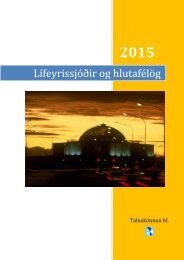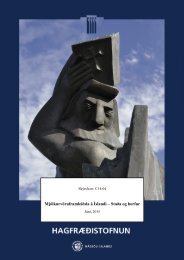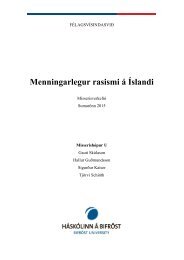You also want an ePaper? Increase the reach of your titles
YUMPU automatically turns print PDFs into web optimized ePapers that Google loves.
WORLD REPORT 2016<br />
HUMAN RIGHTS WATCH<br />
against the king. Published criticism of the ruling party is also banned. Many<br />
journalists practiced self-censorship, especially with regard to reports involving<br />
the king, to avoid harassment by authorities.<br />
On June 30, the Supreme Court of Swaziland granted an appeal by human rights<br />
lawyer, Thulani Maseko, and editor of The Nation magazine, Bheki Makhubu,<br />
and ordered their immediate release from prison. Maseko and Makhubu were arrested<br />
in March 2014 for two articles they published in The Nation questioning<br />
the impartiality of the judiciary, and sentenced to two years in prison. Civil society<br />
groups dismissed the trial as a sham.<br />
In July 2014, The Nation and its publishers were fined an equivalent of US$9,500<br />
by the Swaziland High Court for publishing “seditious” information in the two articles<br />
that Maseko wrote.<br />
Authorities also barred media from reporting on issues they deemed sensitive.<br />
For example, when scores of young girls died in a road traffic accident on August<br />
28 on their way to an annual Umhlanga festival where thousands of virgins<br />
dance before the king to celebrate womanhood and virginity, authorities blocked<br />
media reporting of the incident. The government later said 13 people had died.<br />
Regional and international media disputed the government’s figure and estimated<br />
the death toll at 65.<br />
Rule of Law<br />
Although the constitution provides for three separate organs of government–the<br />
executive, legislature, and judiciary–under Swaziland’s law and custom, all powers<br />
are vested in the king. The king exercises absolute authority over the cabinet,<br />
parliament, and judiciary.<br />
The king appoints 20 members of the 30-member senate, 10 members of the<br />
house of assembly, and approves all legislation passed by parliament. The king<br />
also appoints judges, and, if he wishes, fires them. On June 17, the king fired<br />
Chief Justice Michael Ramodibedi for “serious misbehavior” following allegations<br />
of abuse of office and corruption. Ramodibedi, previously a close ally of<br />
the king, had presided over a partial judiciary and had played a leading role in<br />
the authority’s crackdown on human rights.<br />
The constitution provides for equality before the law, but also places the king<br />
above the law. In 2011, Ramodibedi issued a directive which protected the king<br />
from any civil law suits, after Swazi villagers claimed police had seized their cattle<br />
to add to the king’s herd.<br />
The government has failed to take the necessary steps to operationalize the<br />
Human Rights and Public Administration Commission, established in 2009,<br />
which remained ineffective due to lack of funding, human resources, and enabling<br />
legislation. In its five years of existence the commission has not produced<br />
any report about its work or role.<br />
Women’s Rights<br />
Swaziland’s dual legal system, where both Roman-Dutch common law and Swazi<br />
customary law operate side by side, has resulted in conflict leading to numerous<br />
violations of women’s rights, despite constitutionally guaranteed equality. In<br />
practice, women, especially those living in rural areas under traditional leaders<br />
and governed by highly patriarchal Swazi law and custom, are often subjected to<br />
discrimination and harmful practices.<br />
Young women and girls are forced to take part in cultural activities like the Umhlanga<br />
reed dance. Families of girls and young women who fail to take part in<br />
such cultural activities are often punished or fined by their chiefs. Traditional<br />
structures and practices prohibit women from speaking in public at men’s gatherings<br />
and present significant challenges for women’s political participation. Violence<br />
against women is endemic. Survivors of gender-based violence have few<br />
avenues for help as both formal and customary justice processes discriminate<br />
against them.<br />
Civil society activists have criticized the widely held view among traditional authorities<br />
that human rights and equal rights for women are foreign values that<br />
should be subordinated to Swazi culture and tradition.<br />
Sexual Orientation and Gender Identity<br />
Swaziland’s common law prohibits sodomy, defined as same-sex sexual relations<br />
between men, although no sentence is specified for those found guilty of<br />
such an offence. On March 15, a man in Nhlangano (a town 130 kilometers south<br />
544<br />
545










